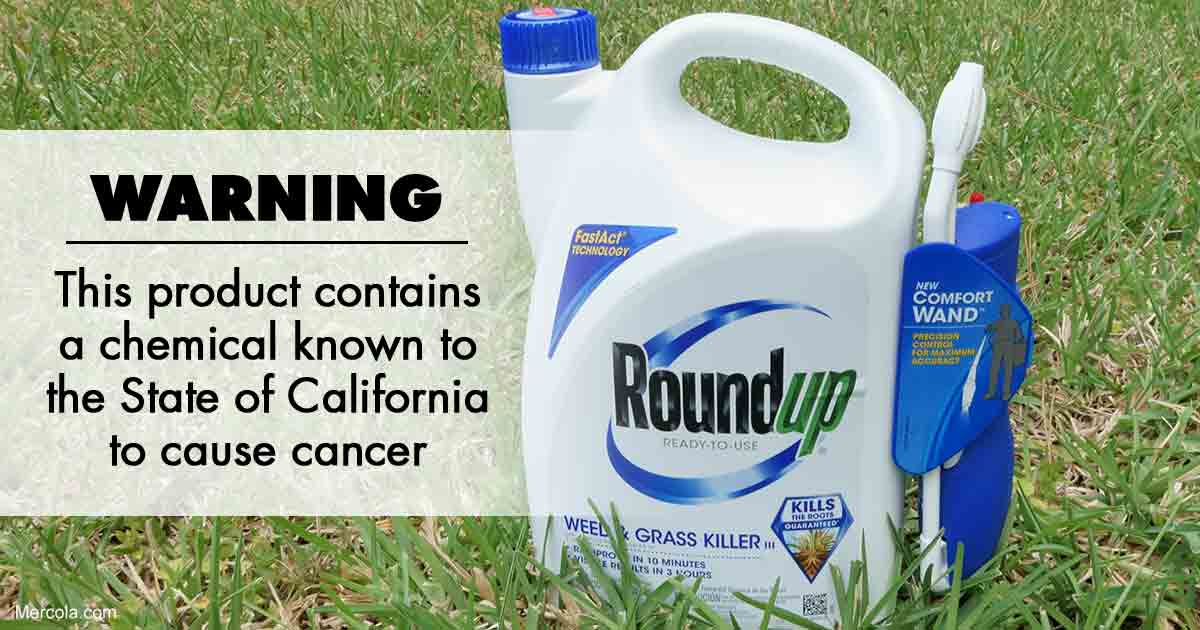In Historic
Victory, Monsanto Ordered to Pay $289 Million in Roundup Cancer Lawsuit
 In an historic victory for those who
have long sought to see agrochemical giant Monsanto held to account for the
powerful company's toxic and deadly legacy, a court in California on August 10
found the corporation liable for damages suffered by a cancer patient who alleged his sickness was directly
caused by exposure to the glyphosate-based herbicides, including the widely
used weedkiller Roundup.
In an historic victory for those who
have long sought to see agrochemical giant Monsanto held to account for the
powerful company's toxic and deadly legacy, a court in California on August 10
found the corporation liable for damages suffered by a cancer patient who alleged his sickness was directly
caused by exposure to the glyphosate-based herbicides, including the widely
used weedkiller Roundup.
The case of school groundskeeper
Dewayne Johnson was the first lawsuit alleging glyphosate causes cancer to go
to trial.
Monsanto, a unit of Bayer AG
following a $62.5 billion acquisition by the German conglomerate, faces more
than 5,000 similar lawsuits across the United States.
The jury at San Francisco's Superior
Court of California deliberated for three days before finding that Monsanto had
failed to warn Johnson and other consumers of the cancer risks posed by its
weed killers. It awarded $39 million in compensatory and $250 million in
punitive damages.
As Robert F. Kennedy Jr., a lawyer
representing Johnson in the case, declared on Twitter, the court "awarded
200 million in punitive damages against Monsanto for 'acting with malice and
oppression.'"
The Organic Consumers Association
(OCA), an advocacy group and longtime critic of Monsanto—which has already
vowed to appeal—celebrated the verdict:
"This verdict proves that when
ordinary citizens, in this case a jury of 12, hear the facts about Monsanto's
products, and the lengths to which this company has gone to buy off scientists,
deceive the public and influence government regulatory agencies, there is no
confusion," said Ronnie Cummins, OCA's international director.
"This is a company that has
always put profits ahead of public safety, and today, Monsanto has finally been
held accountable," he added. "We hope that this is just the first of
many defeats for Monsanto, and that the U.S. Environmental Protection Agency
will pull this product off the market immediately."
Carey Gillam, a journalist and
public interest researcher for the nonprofit U.S. Right to Know, said in
a statement after the ruling that
"Monsanto and its chemical industry allies have spent decades actively
working to confuse and deceive consumers, farmers, regulators, and lawmakers
about the risks associated with glyphosate-based herbicides."
"The evidence that has come to
light from Monsanto's own internal documents, combined with data and documents
from regulatory agencies, could not be more clear: It is time for public
officials across the globe to act to protect public health and not corporate
profits," Gillam concluded.
In the meantime, Cummins said his
group—which also charges that Monsanto has long misled consumers about the
safety of Roundup for humans and pets—looks forward to the next steps in its
own lawsuit against the company. "We are grateful to Mr. Johnson," he
said, "for bravely facing down the 'most evil corporation' in the
world."
Journalist Tom Philpott put the
ruling in context, noting that even while the Trump administration is doing its
best to lift restrictions on toxic pesticides and the chemical industry, the
courts appear to be coming around to the unique and far-reaching dangers posed
by insecticides, herbicides, and other powerful compounds:
As Common Dreams reported, "the U.S. Court of Appeals
for the 9th Circuit on Thursday ruled the Trump administration illegally
blocked a ban on chlorpyrifos—a pesticide linked to brain development delays in
children and nervous systems issues for all people and animals exposed to
it—and ordered that it be outlawed within 60 days."